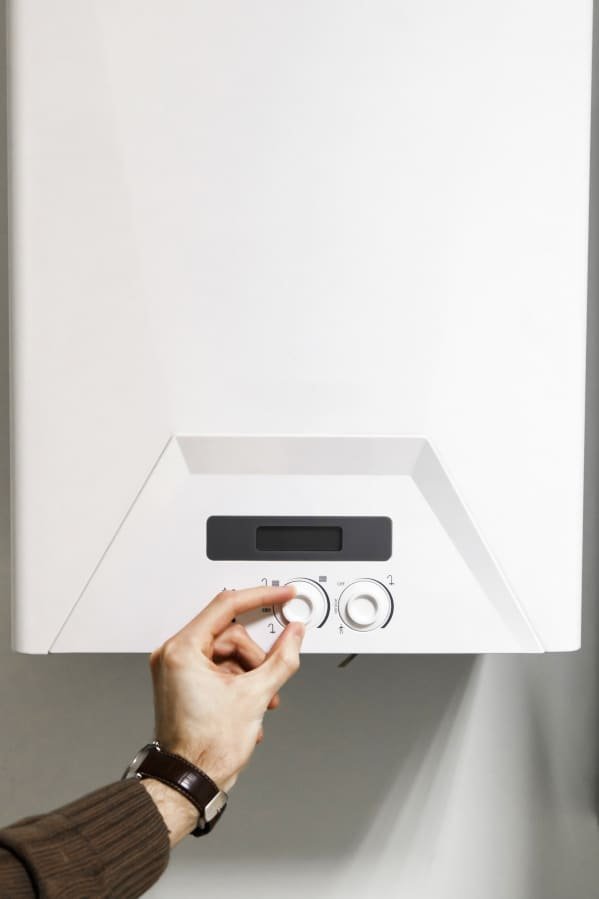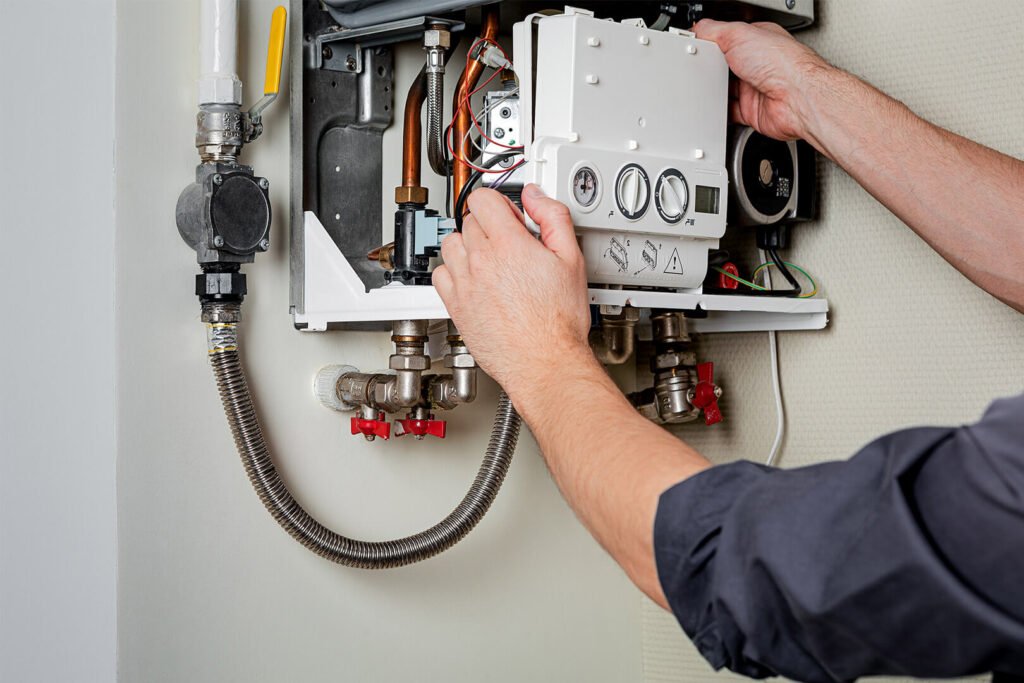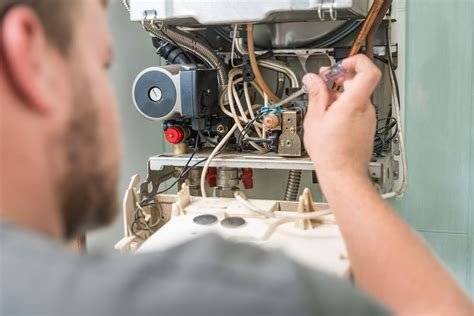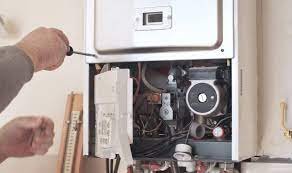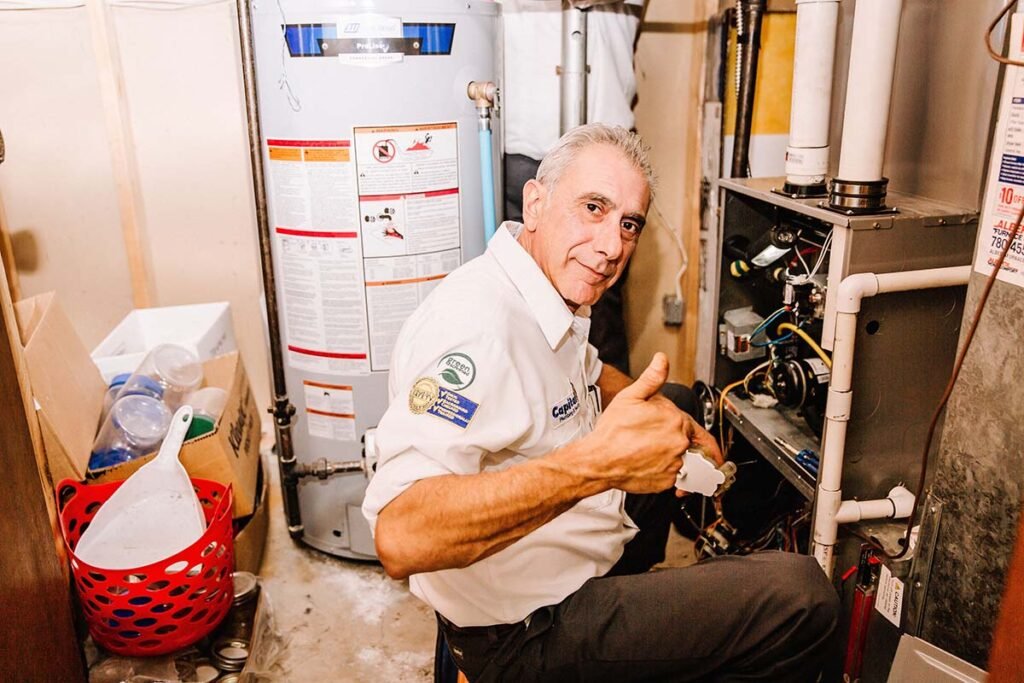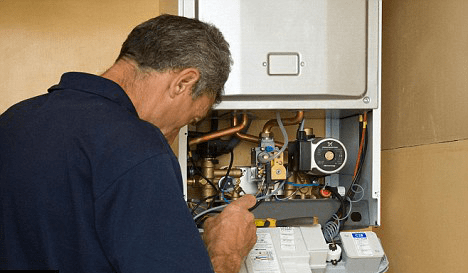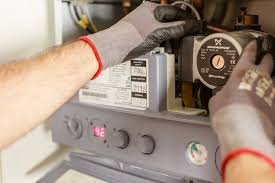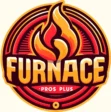Furnace Installation North Cooking Lake - Your Trusted Heating Professionals
Furnace Pros Plus is your trustworthy partner for all your heating needs. With years of experience, we specialize in providing first-class heating solutions to keep your home warm and comfortable. Our group of proficient service technicians devote themselves to providing professional heater installation, maintenance, and repair services. We understand the importance of a correctly working heating system, specifically during the cooler months. We prioritize efficiency, cost, and consumer complete satisfaction in every task (huge or small). Whether you require a brand-new heater, a routine check-up, or emergency repairs, rely on Furnace Pros Plus for reputable and efficient heating services that guarantee peace of mind and comfort.
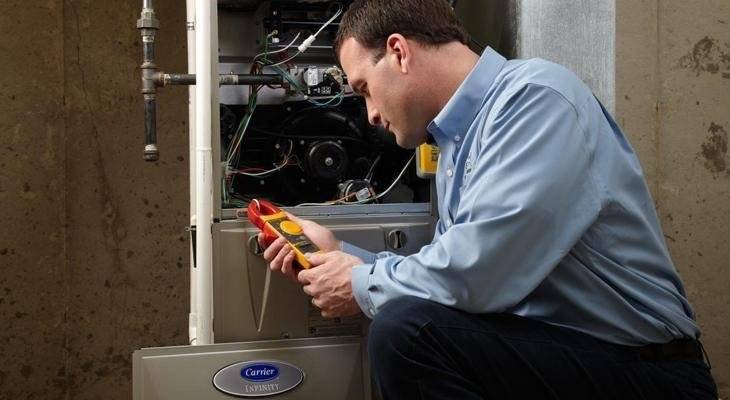
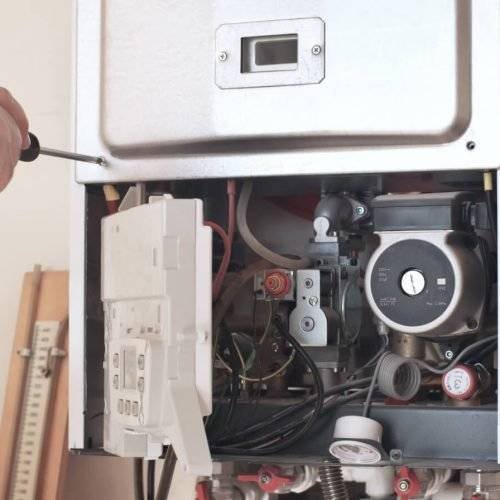
Who Are We?
Residential Heating Replacements and Repairs
Furnace Pros Plus stands out as the top heater installation and repair business in North Cooking Lake, due to its commitment to quality, consumer complete satisfaction, and competence. This reputable business has earned a strong track record by consistently providing trustworthy and efficient heater solutions tailored to the unique needs of each consumer.
One of the crucial elements that set Furnace Pros Plus apart is its group of extremely proficient and certified service technicians. Each service technician brings a wealth of experience and is rigorously trained to manage a large range of heater systems, from older designs to the latest innovations. This guarantees that no matter the type or intricacy of the heater, Furnace Pros Plus has the competence to successfully diagnose and solve any issues.
Moreover, Furnace Pros Plus places a high top priority on customer support. The company understands that heater issues can be disruptive, especially during the extreme North Cooking Lake winter seasons. As a result, they use timely and trustworthy service, guaranteeing that their service technicians are available 24/7 to resolve any emergency situations. This responsiveness minimizes downtime and guarantees that homes and organizations are kept warm and comfortable without substantial delays.
Furnace Pros Plus also sticks out for its commitment to utilizing only high-quality parts and items. By partnering with leading makers, the company ensures that every installation, repair, or maintenance task meets the greatest standards of resilience and efficiency. This not only enhances the longevity of the furnaces but also enhances their efficiency and energy efficiency, which can result in substantial cost savings for customers gradually.
The company’s dedication to openness and reasonable rates further enhances its track record. Furnace Pros Plus provides comprehensive, upfront quotes without hidden costs, guaranteeing that customers understand what they are paying for and can make educated choices about their heater needs.
Last But Not Least, Furnace Pros Plus contributes to the local community by remaining ecologically mindful and promoting energy-efficient solutions. By recommending customers on the very best practices and items for reducing energy consumption, they help North Cooking Lake locals and organizations minimize their ecological impact and delight in much better air quality.
All these elements combine to make Furnace Pros Plus the premier choice for anybody searching for reputable and high-quality heater installation and repair services in North Cooking Lake, Alberta
How can we help you?
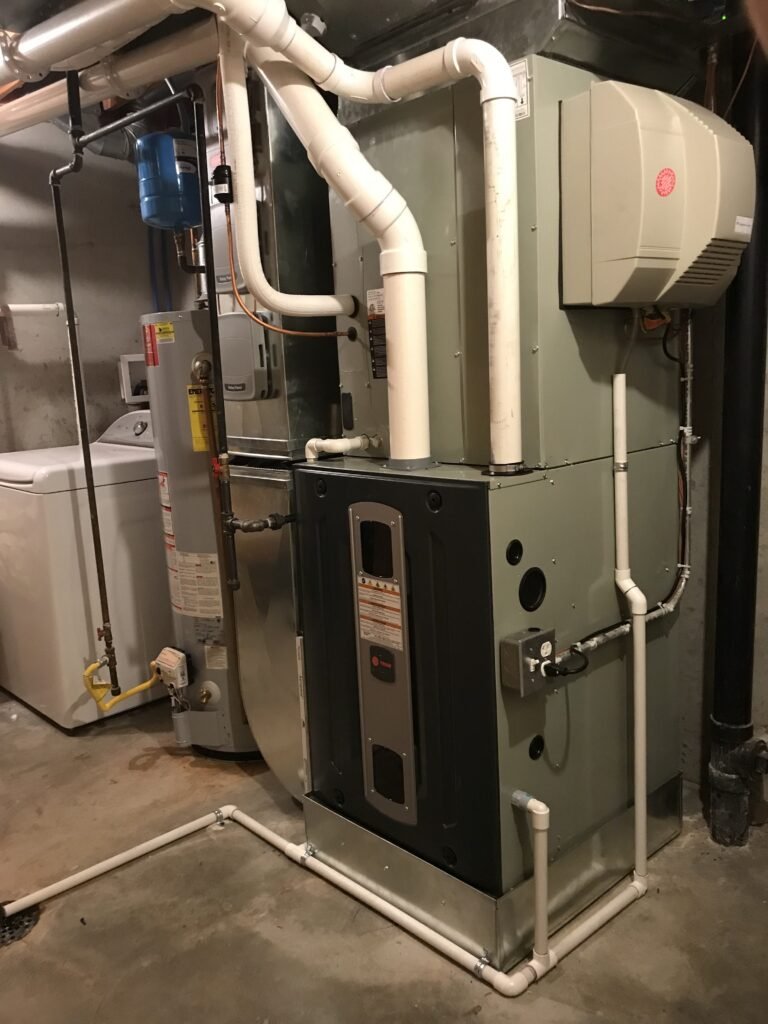
Comprehending the Cost of Installing a Modern Furnace
Introduction
A functioning heater is necessary when it comes to keeping a comfortable and warm home during the cooler months. Nevertheless, there comes a time when setting up a brand-new heater is inevitable.
Comprehending the expenses associated with this process is crucial for property owners to strategy and budget appropriately. This thorough guide explores the numerous elements affecting the cost of setting up a brand-new heater.
Elements Influencing Heater Setup Expenses
Type of Furnace:
- Gas Heaters: Popular for their efficiency, they generally cost more upfront however use lower operating costs.
- Electric Furnaces: They are less expensive than gas furnaces. Nevertheless, electric designs tend to have greater operational expenses due to electricity prices.
- Oil Heating systems: These are less common and can be more expensive due to the cost of oil.
Heater Size and Capacity
- Square Footage: The size of your home directly impacts the capability required for the heater.
- BTU Ranking: Higher BTU ratings correspond to more powerful furnaces, which can increase the cost.
Efficiency Ratings
Yearly Fuel Utilization Efficiency (AFUE):
Higher AFUE ratings mean much better efficiency however also come with a greater price tag.
Brand name and Quality
Top-tier brand names frequently command greater prices due to their track record for quality and longevity.
Installation Intricacy
- Existing System: Updating from an old system might need extra work and cost.
- Ductwork: The condition and design of existing ductwork can affect installation intricacy.
- Accessibility: Hard access to the installation site can increase labour expenses.
Labour Expenses
Labour expenses vary by region. In addition, the intricacy of the installation can affect labour expenses.
Extra Expenses to Consider
- Permits: Some regions need permits for heater installation.
- Inspections: City laws might need post-installation evaluations for safety compliance.
- Thermostats: Updating to a wise thermostat can sustain extra expenses.
Average Cost of Heater Replacement
While prices can vary commonly based upon the elements pointed out above, here are some average cost ranges for heater installation:
- Gas Heating systems: $2,000 to $5,000.
- Electric Furnaces: $1,000 to $2,500.
- Oil Heating systems: $2,500 to $6,000.
These are rough estimates and can vary based upon particular home requirements.
Cost-Saving Tips.
Research and Compare.
Acquire multiple quotes from various contractors to guarantee competitive rates.
Seek Refunds and Incentives.
Look for energy efficiency rebates provided by utility business or government programs.
Consider Long-Term Savings.
Purchasing a more efficient heater can reduce energy expenses gradually.
Conclusion
Setting up a brand-new heater is a significant financial investment, and comprehending the expenses included is necessary for any homeowner. By considering the kind of heater, installation intricacy, labour expenses, and extra expenses, property owners can much better get ready for this required upgrade. Remember to look for multiple quotes, check out available rebates, and think about long-lasting energy cost savings when deciding.
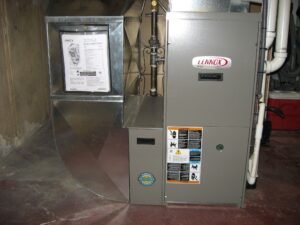
The Right Size Heater for Your Home: A Comprehensive Overview
Introduction
Choosing the right size heater for your home is crucial for guaranteeing efficient heating and comfort during the cooler months. A heating system that’s too small won’t keep your house warm, while one that’s too big can cause unnecessary energy consumption and unequal heating. This guide will help you identify the perfect heater size for your home.
Comprehending Heater Sizing: BTU and Efficiency
We measure the size of a heater in British Thermal Systems (BTU). One BTU is the energy required to raise the temperature of one pound of water by one degree Fahrenheit. When picking a heater, two crucial elements contribute: the BTU rating, suggesting the heater’s heating capability, and its efficiency rating, determined in Yearly Fuel Utilization Efficiency (AFUE).
Calculating Your Home’s Heating Requirements
You should compute your home’s heating needs to identify the proper heater size. The calculation thinks about elements like square video footage, environment zone, insulation quality, window type, and house design. Typically, you require roughly 30-60 BTUs per square foot. Nevertheless, this varies based upon your home’s particular qualities.
Climate Zone and Its Influence On Heater Size
Your geographical area significantly influences the heater size needed. Houses in cooler regions, such as [area], need more BTUs per square foot than those in milder environments. Speak with a heating professional for particular recommendations.
The Function of Home Insulation in Heater Sizing
Excellent insulation lowers the quantity of heat loss, meaning you can go with a smaller heater. Examine your home’s insulation in the walls, attic, and windows. Updating insulation can be a cost-efficient way to minimize heating needs.
Considerations for Different Types of Heaters
There are numerous kinds of furnaces, like gas, electric, and oil. Each type has unique sizing considerations. Gas furnaces are common and efficient, electric furnaces are more simple and safer however frequently more expensive to run, and contractors install oil furnaces where gas isn’t available.
Significance of Expert Heating And Cooling Evaluation
A professional HVAC assessment is vital. Service technicians think about all variables, including ductwork and home design, to recommend the ideal heater size. They can carry out a Manual J calculation, the market standard for identifying heating and cooling loads.
Energy Efficiency and Cost-Effectiveness
Choosing a heater with a high AFUE rating is crucial for energy efficiency and cost savings. Modern furnaces have AFUE ratings between 80% and 98%, suggesting the percentage of fuel converted into heating. While high-efficiency furnaces are more expensive upfront, they can result in substantial cost savings in the long run.
Addressing Typical Misconceptions About Heater Sizing
A typical misunderstanding is that a larger heater is always much better. Nevertheless, an extra-large heater can result in brief cycling, where the heater frequently turns on and off, reducing efficiency and life-span. On the other hand, a small heater has a hard time to heat your home sufficiently.
Long-Term Benefits of the Right-Sized Furnace
Selecting the right-sized heater has long-lasting benefits, including consistent comfort, lower energy expenses, lowered carbon footprint, and less maintenance issues. It’s a balance between upfront expenses and long-lasting cost savings.
Conclusion: Making an Informed Decision
Choosing the right size heater is a choice that impacts your home’s comfort and energy efficiency for years to come. By comprehending the basics of heater sizing and seeking professional assistance, you can make an educated decision that guarantees ideal heating for your home.
Remember, the secret to an efficient and comfortable home lies in picking the right heater and regular maintenance and considering other elements like insulation and environment. With this thorough guide, you are fully equipped to choose the ideal heater for your home, providing warmth and comfort for numerous winter seasons.

Replace or Repair Heater: A Exhaustive Overview
Introduction
Deciding whether to replace or repair your heater is a significant decision for any homeowner. The choice impacts your immediate comfort and safety and has long-lasting financial implications. This thorough guide will check out numerous aspects to think about, assisting you make an informed decision.
Comprehending Your Furnace
Life expectancy and Types
Heating systems generally have a life expectancy of 15-20 years. The two main types are gas and electric, each with various maintenance and operational expenses.
Signs of Difficulties
Typical indications that your heater might require attention include uncommon noises, inconsistent heating, and increased energy expenses.
When to Consider Fixing Your Heater
Repair is frequently the very best choice for small issues or furnaces that are fairly new and still under warranty.
Cost-Effectiveness
Fixing can be more cost-efficient for small issues. Nevertheless, regular repairs might indicate a deeper issue.
Environmental Effect
Repairs frequently have a lower ecological impact than replacing the entire system.
When Replacement is the Very Best Choice
You must think about replacement if your heater is near completion of its life-span, repairs are ending up being increasingly expensive, or if it could be more energy efficient.
Long-term Cost Savings
While the preliminary cost is greater, a brand-new heater can be more energy-efficient, saving you money on energy expenses.
Technological Developments
Newer designs feature advanced innovation, such as wise thermostats, which use much better temperature level control and efficiency.
Weighing Your Choices
Cost Analysis
Compare the cost of repairs gradually versus the one-time cost of a brand-new heater.
Energy Efficiency
Examine how your existing heater’s efficiency is impacting your energy expenses.
Home Worth
Think about how a brand-new heater might increase the worth of your home, specifically if you plan to offer in the future.
Expert Guidance
Seeking Specialist Opinion
Talk to heating and cooling professionals to evaluate the state of your existing heater and get estimates for repair and replacement.
Significance of Regular Upkeep
Regular maintenance can extend the life of your heater, whether you choose to repair or replace it.
Conclusion
In conclusion, deciding to repair or replace your heater depends upon numerous elements, including age, condition, cost, and energy efficiency. By considering these elements and seeking professional guidance, you can decide that guarantees comfort, safety, and financial vigilance for your home.
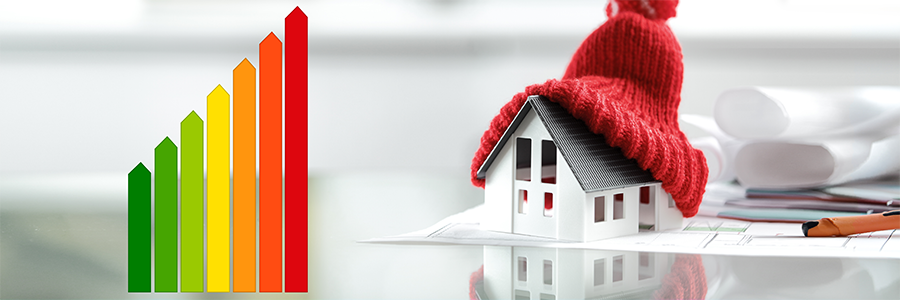
What Season is the Most Affordable to Replace The Heater?
Will a Modern Energy-Efficient Heater Lower Your Residence Insurance?
Introduction
Home maintenance can be a significant financial investment, specifically when it involves crucial systems like heating. One of the most considerable expenses property owners face is replacing their heater. Nevertheless, timing this replacement can result in substantial cost savings. This article explores the very best season to replace your heater, considering cost-effectiveness and practicality.
Comprehending Heater Replacements
The Requirement for Replacement
Before delving into timing, it’s necessary to understand why and when you must replace your heater. Typical indicators include regular repairs, heating inadequacy, and the system’s age (typically beyond 15-20 years). Changing an out-of-date or malfunctioning heater enhances heating efficiency and guarantees safety and comfort during cooler months.
Elements Influencing Heater Prices
A number of elements affect heater prices, including the kind of heater, brand, capability, and the intricacy of installation. Seasonal demand is another substantial element, frequently neglected, yet it plays an important function in identifying the cost.
Finest Time for Replacement: Off-Season
Why Pick Off-Season?
The off-season, primarily spring and early fall, is typically the cheapest to replace a heater. The demand for heater is lower during these periods than during the peak winter months. Lower demand frequently leads to more competitive rates from makers and installers.
Benefits of Off-Season Replacement
- Lower Expenses: Reduced demand can result in discounts and more customer working out power.
- Availability of Technicians: HVAC service technicians are less busy during these times, guaranteeing more flexible scheduling and quicker installation.
- Ample Time for Research: The off-season offers property owners adequate time to research various heater designs and alternatives without the pressure of immediate need.
Planning Ahead
Using the off-season requires planning. Expect the need for replacement and schedule it when the demand is low. This insight saves money and prevents the inconvenience of a heater breaking down in the middle of winter season.
Winter season: The Peak Season
Challenges of Winter Season Replacement
- Higher Prices: The demand for heater installation and repair peaks during winter season, resulting in greater prices.
- Busy Schedules: Discovering a service technician might be more difficult, and you might need to wait longer for a visit.
- Emergency Replacements: If your heater breaks down in winter season, you might need to go with an immediate replacement, which leaves little room for cost comparison or negotiation.
Other Considerations
Energy Efficiency and Rebates
Purchasing energy-efficient designs might be more expensive upfront however can result in long-lasting cost savings. Likewise, look out for rebates and tax credits provided for energy-efficient home enhancements.
Significance of Regular Upkeep
Regular maintenance can lengthen the life of your heater, delaying the need for replacement. It’s a necessary aspect of home care that you must take notice of.
Conclusion
Timing your heater replacement can result in substantial cost savings. The off-season, especially spring and early fall, is generally the most cost-efficient duration for this financial investment. Planning, considering energy efficiency, and keeping your existing heater can enhance expenses and guarantee a warm, comfortable home.
Introduction
Homeowners frequently contemplate whether upgrading their home devices and systems can result in cost savings on their home insurance premiums. One common concern is whether setting up a brand-new heater reduces home insurance expenses. This article explores how a brand-new heater installation might impact your home insurance, providing insights into insurance policies, risk management, and potential cost savings.
Comprehending Residence Insurance Premiums
Before diving into the specifics of furnaces and insurance, it’s crucial to understand what elements affect home insurance premiums. Insurance provider evaluate numerous elements, including:
- Residential Or Commercial Property Age and Condition: Insurance Representatives view newer homes with upgraded systems as lower dangers.
- Area: Geographical area and local environment can significantly affect insurance rates.
- Security Functions: The existence of alarms, smoke detectors, and other safety devices can reduce premiums.
The Effect of a New Heater on Residence Insurance
Setting up a brand-new heater in your home can have numerous implications for your home insurance:
- Reduced Risk of Fire and Gas Leaks: Modern furnaces with advanced safety features minimize dangers like fire or gas leakages. This risk reduction can be beneficial in the eyes of insurance companies.
- Improved Energy Efficiency: Newer furnaces are frequently more energy-efficient, resulting in lower utility expenses and a reduced ecological footprint, indirectly affecting insurance considerations.
- Improved Home Worth: Updating to a brand-new heater can increase your home’s market price, which might affect the protection you require.
Possible Insurance Discount Rates
Some insurance companies use discounts for home enhancements that minimize risk. These might include:
- Protective Device Discounts: You might get approved for a discount if your new heater includes advanced safety features.
- Green Residence Discounts: Some insurance providers provide unique discounts for setting up energy-efficient devices.
Documentation and Appraisal
To take advantage of a brand-new heater installation for insurance benefits, think about the following:
- Expert Setup: Ensure a certified professional installs your heater, which can be a requirement for insurance benefits.
- Keep Records: Preserve all invoices and paperwork for the heater purchase and installation.
- Notify Your Insurance Company: Alert your insurance company about the upgrade. They might need an assessment or extra paperwork.
Considerations Before Updating
While a brand-new heater can use benefits, think about the following:
- Cost vs. Advantage Analysis: Evaluate if the long-lasting cost savings on insurance and energy expenses justify the preliminary cost of a brand-new heater.
- Insurance Plan Review: Speak to your insurance representative to understand how a brand-new heater might particularly impact your policy.
Conclusion
Updating to a brand-new heater can reduce your home insurance premiums by reducing risk and boosting your home’s safety and efficiency. Nevertheless, the impact varies based upon individual insurance policies and the particular features of the heater. It’s a good idea to consult with your insurance provider to understand the complete benefits and implications of a brand-new heater installation.
FAQs
Q: How much can I save money on my home insurance by setting up a brand-new heater?
A: Savings vary based upon the insurance provider and the particular features of the new heater. Talk to your insurance representative for comprehensive details.
Q: Are there any particular kinds of furnaces that are more beneficial for insurance discounts?
A: Heating systems with advanced safety features, high energy efficiency ratings, and those that satisfy particular ecological standards are frequently more beneficial.
How to Get ready for a Heating System Installation
Setting up a brand-new heater in your home is a significant financial investment and a necessary upgrade to your living space. It enhances the comfort of your home and enhances energy efficiency. Appropriate installation preparation is crucial to guarantee the installation process is smooth and hassle-free. This article will assist you through the required actions to get ready for a heater installation.
Comprehending Your Heating Requirements
Examining Your Area: The primary step is to evaluate the size of your area and understand the heating requirements. A too-large or too-small heater for your home can result in inadequacy and greater energy expenses. Consulting with a heating professional to identify the right heater size is essential.
Choosing the Right Heater: There are numerous furnaces, including gas, electric, and oil. Each has benefits and drawbacks; the choice depends upon your area, budget, and personal choice. Research and consult with specialists to make an informed decision.
Pre-Installation Preparation
Selecting a Qualified Installer: We can not overstate the importance of picking a qualified and experienced installer. Look for professionals with good evaluations and appropriate accreditation. They will guarantee an appropriate installation and guide you through the process.
Cleaning the Location: Ensure the area where you plan to install the heater is clear of any clutter. A clean area provides easy access to the installation group and accelerate the process. Remove any important or delicate items from the vicinity to prevent unintentional damage.
Preparing for Downtime: Depending upon the intricacy of the installation, your heating system might be down for a few hours to a day. Strategy appropriately, specifically if the installation is during cooler months.
During Setup
Access to Your Home: Ensure the installers have easy access to your home, which includes guaranteeing that parking is available and a clear path to the heater area.
Interaction: Stay available to answer any concerns the installers might have. Clear interaction can help solve any issues quickly and ensure your installation goes as prepared.
After Installation Checks
Check the Installation: Once the installation is total, inspect the work with the installer. Ensure that the installation is total which the area is tidy.
Comprehending the System: Have the installer describe the performance of the new heater, including how to alter filters and the standard troubleshooting actions.
Service warranty and Documentation: Guarantee you get all required paperwork, including warranty details and operating handbooks. Keep these files in a safe place for future recommendation.
Conclusion
Preparing for a heater installation involves comprehending your heating needs, picking the right heater, and picking a qualified installer. By following these actions, you can guarantee a problem-free installation process and delight in the comfort and efficiency of your new heating system for years to come. Remember, a little preparation goes a long way in guaranteeing a smooth and effective heater installation.
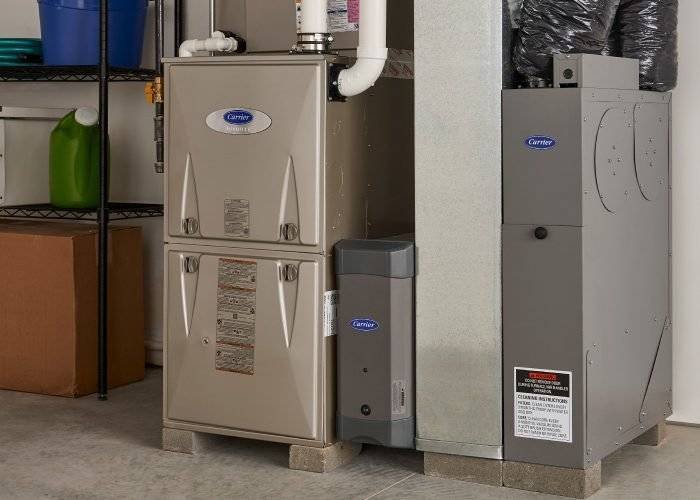
Our Work


